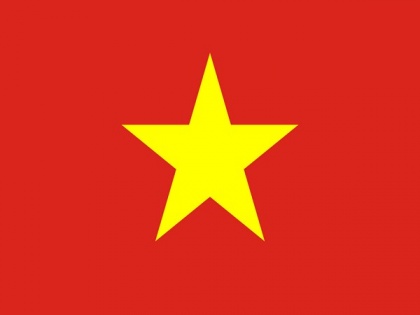China's belligerence pushing Vietnam closer to Washington
By ANI | Published: April 8, 2021 12:38 AM2021-04-08T00:38:39+5:302021-04-08T00:45:02+5:30
Beijing's increasing belligerence towards Vietnam and the anti-China sentiment in the country is pushing Vietnam closer towards the United States.

China's belligerence pushing Vietnam closer to Washington
Beijing's increasing belligerence towards Vietnam and the anti-China sentiment in the country is pushing Vietnam closer towards the United States.
Last year amid the COVID-19 pandemic, two Chinese maritime vessels rammed and sank Vietnamese fishing boats in April and June while Chinese aggression forced Hanoi to cancel contracts with oil compes costing Vietnam almost a billion dollars, writes Charles Dunst for Nikkei Asia.
Vietnam and China have always had an uneasy diplomatic relationship, with hostile sentiments being fuelled by an ongoing territorial dispute in the South China Sea between China, Vietnam and three other ASEAN countries besides Beijing's activities on the Mekong River that have affected ASEAN countries.
This has led to tremendous unpopularity of China in Vietnam, accomped by the "toxic" nature of Chinese goods and the exploitative nature of Chinese enterprises.
The last 15 years have seen hundreds of anti-China rallies with Vietnamese citizens complaining that the national leaders have "sold the country to China".
Chinese activity of creating dams, coupled with the effects of climate change, has robbed the Mekong River of its riches which caused Vietnam to experience its worst drought in 90 years in 2016.
In 2019, Chinese damming pushed excess saltwater into Mekong, damaging Vietnamese rice farming in the process.
These activities, coupled with China's overreach in the South China Sea and its influence in Cambodia, runs the risk of increasing Vietnamese anti-China sentiment to such an extent that Hanoi will have little choice but to move closer to Washington, writes Dunst.
This is further exemplified when in 2019, Vietnam signalled a surprising willingness to abandon its three No's policy - no formal military alliances, no hosting of foreign military bases and no explicit alignment with any single outside actor -- by declaring that Vietnam will consider developing necessary, appropriate defence and military relations with other countries.
Furthermore, Vietnam could play a larger role in American foreign policy by hosting more US port calls and accepting American defence aid packages, Dunst writes, adding that Vietnam's envoy to the US has informed that US President Joe Biden has already invited Hanoi to join the Quadrilateral Security Dialogue (Quad).
The Communist Party of Vietnam (CPV) could solidify its nationalist credentials and increase its domestic popularity by accepting American overtures to powerfully oppose China, known by the Vietnamese as "the bandit attacking our house".
Biden can also capitalise on China's mistakes to bring Vietnam closer into the American fold, laying the groundwork for greater cooperation with Vietnam on issues such as the South China Sea.
( With inputs from ANI )
Disclaimer: This post has been auto-published from an agency feed without any modifications to the text and has not been reviewed by an editor
Open in app